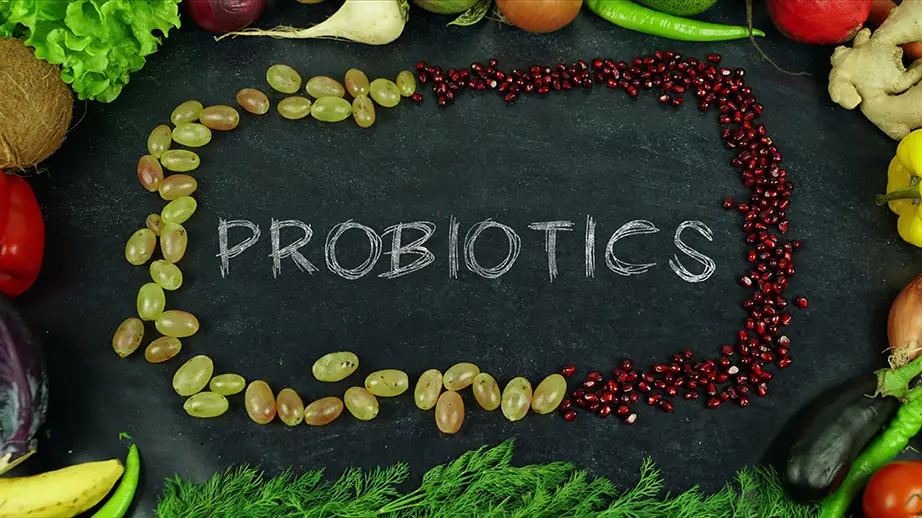By Kristin DeasyKristin Deasy is a freelance writer from California based in ArgentinaThe human intestine is a crazy place. Some 10 trillion microbes of numerous species are reportedly teeming around in our vitals, busy doing their thing. What their thing is exactly? Well that’s what the medical world doesn’t quite fully understand.
In recent years, probiotics have been touted as a solution to some gut-related afflictions. In a similar span of time, probiotics have also become a 6-billion-dollar industry (fact check: https://www.gastrojournal.org/article/S0016-5085(20)34732-6/pdf).
Is that because they are effective, or because probiotics are an unregulated and aggressively marketed industry? The short answer is: we don’t know.
Studies are, on the whole, inconclusive. Some indicate that certain probiotics taken for certain problems may alleviate symptoms. Other studies – the most recent being one that made headlines this year (https://edition.cnn.com/2020/06/09/health/probiotics-new-us-guidelines-wellness/index.html) – are more critical of the probiotic industry and skeptical of its claims.
The immense complexity of the GI tract and its swarms of colonizers – which equals 2-4 pounds in weight – not to mention the numerous strands and particularities of the probiotic world, make it exponentially more difficult to produce a truly authoritative study.
Probiotics remain poorly understood by the general public as well. Medical practitioners report receiving numerous queries from patients on the subject.
The World Health Organization defines probiotics as “live microorganisms which when administered in adequate amounts confer a health benefit on the host.” (https://www.nature.com/articles/nrgastro.2014.66)
Probiotics were introduced to the world by Nobel laureate Elie Metchnikoff in his groundbreaking study on the longevity of Bulgarians. Writing in the late 1800s, the Russian scholar cited the surprising “number of centenarians to be found in Bulgaria, a region in which yahourth, a soured milk, is the stable food.”
“Some of the centenarians, described by M. Chemin in his memoir, lived chiefly on a milk diet,” Metchnikoff recounted in his book “The Prolongation of Life: Optimistic Studies” (you can read the book in full here: https://www.gutenberg.org/ebooks/51521).
Metchnikoff studied the bacteria found in fermented milks and cheeses consumed in the region and proposed, convincingly, that probiotics be taken into consideration by the medical community.
From there, the pace quickened. Today, the consumption of probiotics is increasing at a rate that outpaces the medical community’s understanding of them.Despite the lack of information, probiotics “have been used as a treatment modality for over a century,” according to a 2010 study (https://www.ncbi.nlm.nih.gov/pmc/articles/PMC3002586/), entitled: “Use of probiotics in gastrointestinal disorders: what to recommend?”
“They may restore normal bacterial microflora and affect the functioning of the GI tract by a variety of mechanisms,” the report said.
Not everyone is convinced. In a wide-ranging report on the effectiveness of probiotics published this year by the American Gastroenterological Association, researchers found:
“While probiotics have become an integral part of clinical care, we found that, in the majority of the 8 contexts that were examined, there was either insufficient evidence to recommend the use of probiotics as a part of clinical practice or there was a significant knowledge gap that precluded us from making any conclusions.” (https://www.gastrojournal.org/article/S0016-5085(20)34732-6/pdf)
So: Should you take probiotics, or not? The best answer, for now, is there seems to be little harm in trying them out and seeing if they work for you – as always, in moderation.
(Consult with your doctor first. Those with severe stomach or intestinal problems should avoid probiotics due to concerns that they may provoke permeability in the intestinal wall.)
The best approach is to increase probiotic intake naturally, given that the over-the-counter probiotic supplements’ claims remain untested.
Foods that naturally contain probiotics include yogurt (make sure it’s labeled as containing “live active cultures” as some yogurts are heat-processed after fermentation), buttermilk, saltwater-brine olives that don’t contain lye (which most store-bought olives do: https://www.eatthis.com/best-probiotic-foods/), sauerkraut, miso, pickles, and pickled vegetables, and aged cheeses such as parmesan, gruyere, gouda, swiss and cheddar (the FDA requires that cheeses made from probiotic-rich unpasteurized milk must be aged at least 60 days: https://www.allrecipes.com/article/probiotic-foods/). For the more adventurous, there’s kefir and kombucha, two probiotic-packed fermented drinks.
For those looking to resolve a specific problem, the American College of Gastroenterology has compiled a list of symptoms with their corresponding probiotics: https://gi.org/topics/probiotics-for-the-treatment-of-adult-gastrointestinal-disorders/Have you tried incorporating more probiotic foods or taken probiotic supplements? Share your experience with us in the comments below!Kristin Deasy is a freelance writer from California based in Argentina. She is passionate about nutrition and recently opened a restaurant oriented towards clean eating in Patagonia.
